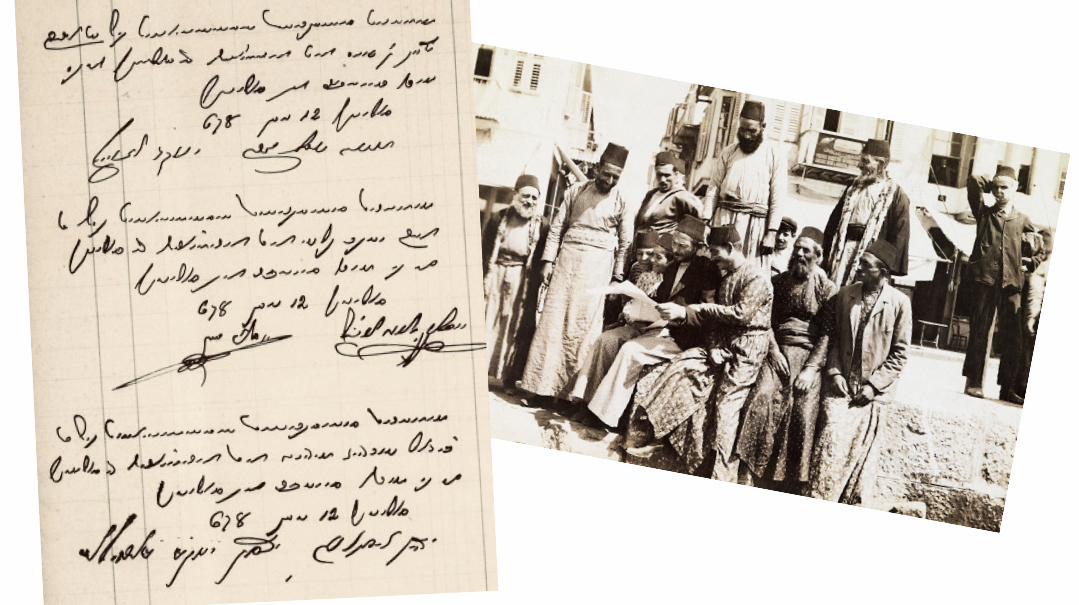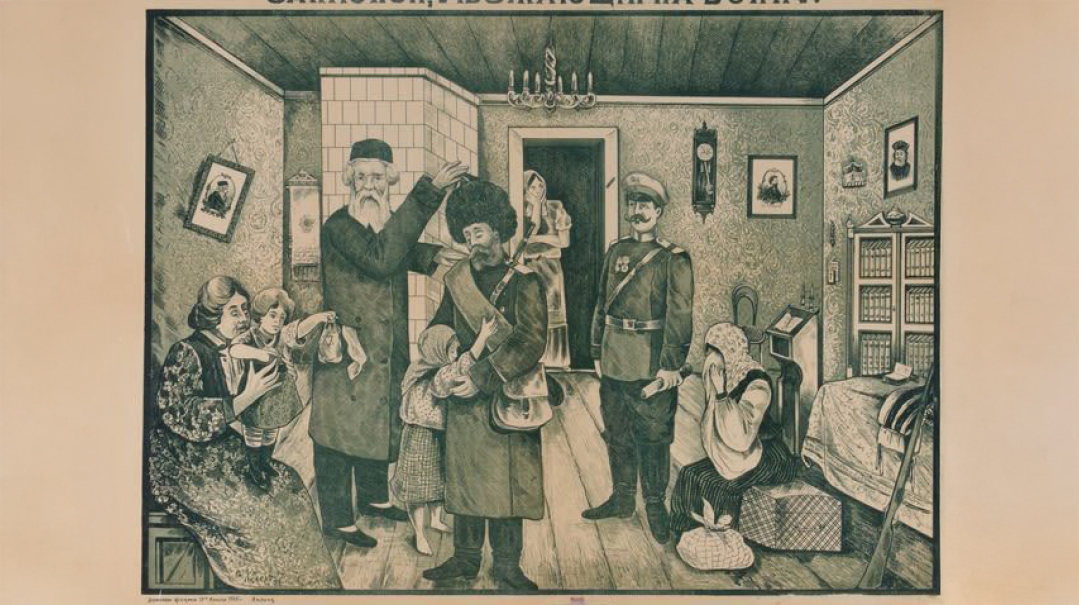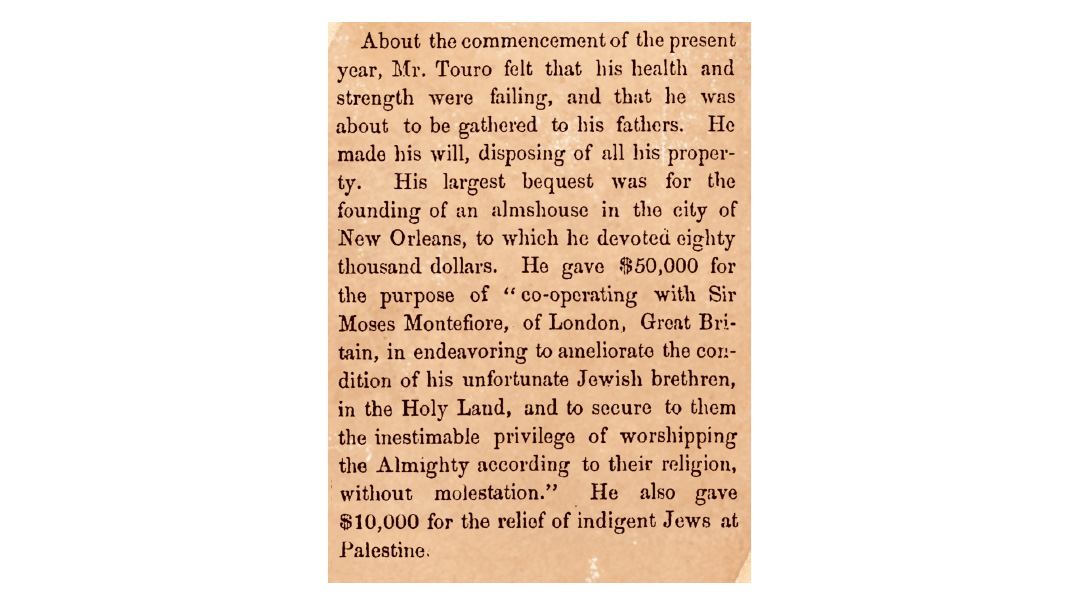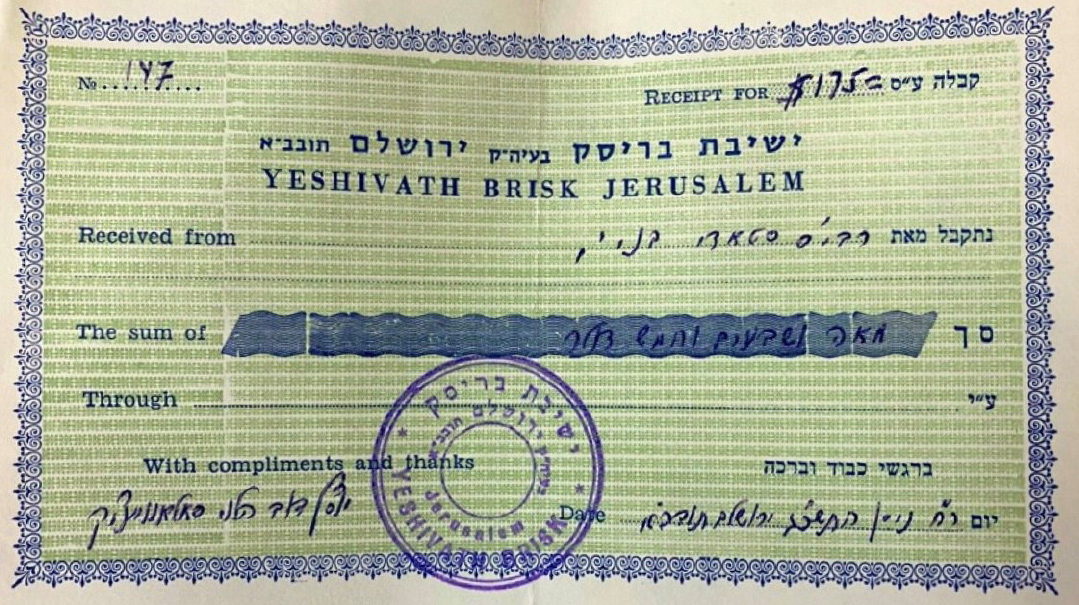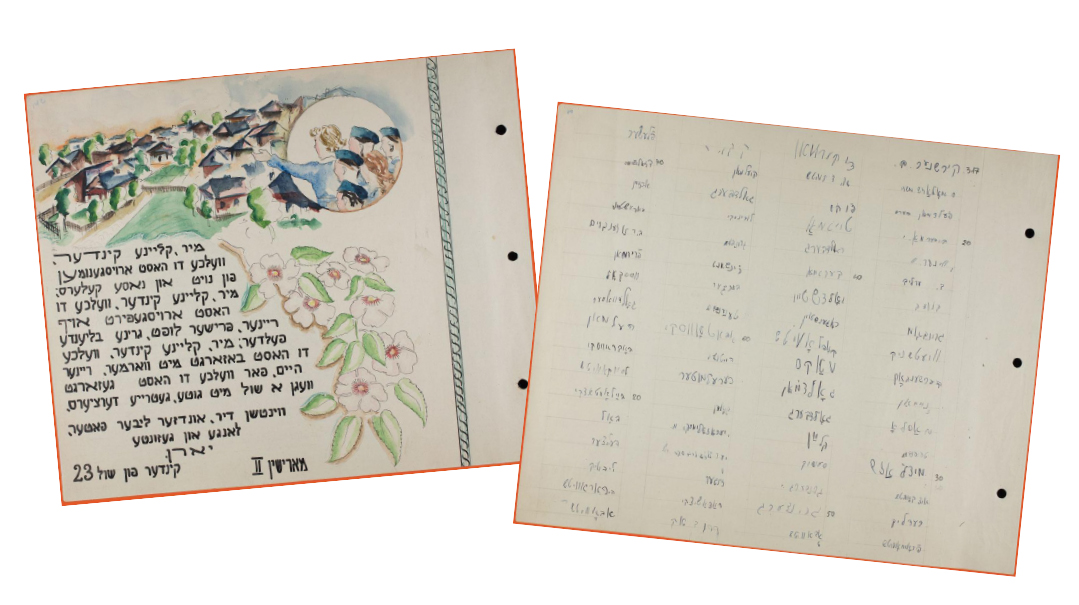The Chasam Sofer Centennial Cancellation
| September 29, 2024That the Chasam Sofer would have such a proliferation of eineklach wasn’t so obvious at the outset of his storied life
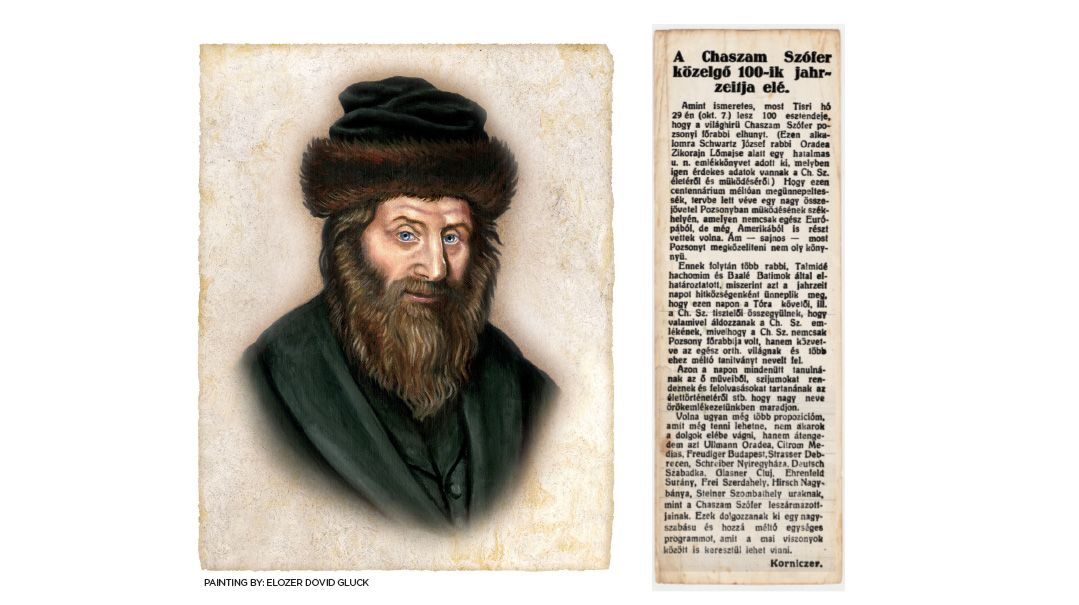
Title: The Chasam Sofer Centennial Cancellation
Location: Bratislava, Slovakia
Document: Hoemesz
Time: September 1939
As it is known, on the 29th of Tishrei (October 7) it will be 100 years since the world-renowned Chief Rabbi of Pressburg, the Chasam Sofer, passed away. (For this occasion, Rabbi Joseph Schwartz of Oradea published a massive memorial book called Zikorajn Lőmajse, which contains very interesting data about the life and work of the Chasam Sofer.) To commemorate this centenary appropriately, a large gathering was planned in Pressburg, the seat of his activities, which would have been attended not only from all over Europe but also from America. However, unfortunately, it is not so easy to reach Pressburg now.
As a result, several rabbis, Torah scholars, and community leaders have decided to commemorate this yahrtzeit day in each community. On this day, followers of the Torah and admirers of the Chasam Sofer will gather to pay tribute to his memory, as the Chasam Sofer was not only the Chief Rabbi of Pressburg but indirectly of the entire Orthodox world, and he raised many worthy disciples.
On this day everywhere, people would study from his works, organize siyumim (completion of Torah study), and give lectures about his life story, etc., so that his great name remains in our eternal memory.
I would offer more proposals for what could be done, but I don’t want to preempt things. Instead, I leave it to Messrs. Ullmann of Oradea, Citrom of Medias, Freudiger of Budapest, Strasser of Debrecen, Schreiber of Nyíregyháza, Deutsch of Subotica, Glasner of Cluj, Ehrenfeld of Surány, Frei of Szerdahely, Hirsch of Baia Mare, and Steiner of Szombathely, as descendants of the Chasam Sofer. Let them develop a grand and worthy unified program that can be carried out even under today’s circumstances.
Korniczer
From time immemorial, distinguished lineage has been a point of pride for Jews. Rooting oneself within the family tree of one’s illustrious ancestors strengthens identity and generates a sense of continuity and tradition. One historic figure looms over all others when it comes to the sheer number of eineklach, and their immense and justified pride in tracing their lineage back to his overarching influence. This is of course Rav Moshe Sofer, the Chasam Sofer (1762–1839).
That the Chasam Sofer would have such a proliferation of eineklach wasn’t so obvious at the outset of his storied life. Shortly after his arrival in Prusnitz (Prostejov), Czechia, in 1786, he married Sarah Malkah Yurvitz. The couple remained childless until her passing 26 years later. His second marriage was to Sarel Eiger, daughter of Rav Akiva Eiger, and this marriage produced four sons and seven daughters.
As was unfortunately common at the time, not all of his children survived until adulthood. The majority did, however, and each established a branch of the dynasty. Within a few generations, dozens of descendants of the Chasam Sofer were continuing the legacy of their illustrious forebear, serving as rabbis, dayanim, and roshei yeshivah across the length and breadth of the Austro-Hungarian Empire, as well as in Romania and Poland. A full profile of his many illustrious family members through the ensuing generations is beyond the scope of this column, and would likely fill a couple of volumes.
A grand family reunion was proposed in 1939 to try to bring together all the scattered descendants of the Chasam Sofer in Pressburg (Bratislava, Slovakia), the seat of the Chasam Sofer’s long rabbinate. The occasion was the centennial yahrtzeit of the Chasam Sofer, which was to take place on 25 Tishrei 1939. Unfortunately for the international federation of Chasam Sofer eineklach, the Nazis installed a collaborationist puppet regime in Slovakia that year, and World War II broke out on September 1, 1939. The plans for the great centennial reunion were shelved.
On September 13, 1939, a short report appeared in the Romanian Jewish weekly Hoemesz, founded by Rav Benzion Wiesel of Torda. The letter was penned by a Chasam Sofer descendant who signed his name simply as “Korniczer.” The letter described the publication of a memorial book entitled Zichron L’Moshe in honor of the centennial yahrtzeit, and laid out plans for the reunion that had to be canceled due to the security situation.
The Korniczer family was one of the prominent branches of the Chasam Sofer’s offspring. Rav Eliyahu Korniczer was married to the Chasam Sofer’s daughter Gittel, and unfortunately passed away at a young age. Rebbetzin Gittel eventually remarried Rav Shlomo Zalman Shpitzer, who was renowned as the rabbi of Vienna’s famous Schiffschule for decades. Her son from her first marriage, Akiva, married his cousin Raizel, the daughter of Rav Shimon Sofer, the Chasam Sofer’s son who became the chief rabbi of Krakow. The Korniczer family served in rabbinical roles of the Krakow Jewish community for the next three generations until the Holocaust — most prominently Rav Yosef Nechemia Korniczer, the av beis din of Krakow before his passing in 1933.
The aforementioned letter announced that in lieu of the planned reunion, a decentralized ceremony would take place in several communities around the world. His descendants would gather for siyumim and speeches about the life history of the Chasam Sofer, to eternalize his memory among his family and the entire Jewish People, whom he served and upon whom he had an everlasting impact.
The letter’s conclusion mentions “[Rabbis] Ullmann of Oradea, Citrom of Mediaș, Freudiger of Budapest, Strasser of Debrecen, Schreiber of Nyíregyháza, Deutsch of Subotica, Glasner of Cluj, Ehrenfeld of Surány, Frei of Dunajska Streda, Hirsch of Nagybánya, and Steiner of Szombathely.” It would appear to be a partial list of who’s who of Chasam Sofer eineklach in the greater Hungary-Romania-Slovakia region in 1939. All of these individuals served in distinguished positions in their respective communities. A few of them are profiled below to give a sense of the diverse rabbinical legacy in the Chasam Sofer’s family on the eve of World War II.
Rav Yisrael Ullman was the rosh hakahal of Oradea (Grosswardein), Romania, and was married to his cousin, the daughter of Rav David Sofer. His father Rav Shlomo Zalman Ullman was the son-in-law of Rav Yitzchak Leib Sofer, a son of the Ksav Sofer who served as the president of the Machzikei Hadas religious political organization. Though Rav Yisrael Ullman perished during the Holocaust, his son Rav Shlomo Zalman was saved on the Kastner train, became a close student of the Chazon Ish, and served in prominent rabbinical positions in Israel until his passing in 2018.
Pinchas (Phillip) Freudiger was a son-in-law of the last prewar rabbi of Bratislava (Pressburg), Rav Akiva Sofer, the Daas Sofer. A wealthy businessman and communal leader, he served as the titular head of the autonomous Orthodox community of Budapest during the crucial war years. He plied his connections to raise funds for the purpose of bribing Nazi officers to forestall deportations and to assist refugees, working in tandem with Rav Michoel Ber Weissmandl of the Working Group in Bratislava and the Aid and Rescue Committee of Rudolf Kastner in Budapest.
In this capacity, Freudiger arranged for many family members and prominent rabbinical figures to be included on the Kastner train. He and his own family escaped to Romania later that summer. His testimony at the Eichmann trial in 1961 generated a commotion in the courtroom when many Holocaust survivors in the audience accused him of not informing Hungarian Jewry of their impending deportation to Auschwitz in the summer of 1944, which would have given them a chance to escape. This was all the more confounding considering that he had personally received a copy of the famous Vrba-Wetzler Auschwitz Protocols detailing the reality of the gas chambers from Rav Michoel Ber Weissmandl.
One of the most senior and respected halachic authorities in prewar Hungary was undoubtedly Rav Shlomo Tzvi Strasser, a grandson of the Ksav Sofer. He studied in Pressburg as a student of his uncle Rav Simcha Bunim Sofer, the Shevet Sofer, and later married his cousin, the daughter of his uncle Rav Yaakov Akiva Sofer. In 1902, he was appointed rabbi of the Orthodox community of Debrecen, and served in that capacity for more than four decades. He operated a yeshivah in Debrecen that had more than 200 students at its peak. He was also known as the foremost expert on eiruvin and mikvaos in all of Hungary and was frequently consulted on these topics. During the Holocaust, he escaped from Hungary on the Kastner train and eventually settled in Bnei Brak, where he passed away in 1952.
The Chasam Sofer’s daughter Hindel married Rav David Tzvi Ehrenfeld. Rav Shmuel Ehrenfeld served as rabbi of Mattersdorf and authored the sefer Chasan Sofer. The prominent Ehrenfeld family all descend from this branch. One of his sons was Rav David Tzvi Ehrenfeld, who served as rabbi of Surany, Slovakia, and was the president of the united Orthodox communities of Slovakia.
Rav Shmuel Ehrenfeld’s son-in-law was Rav Avraham Glasner who served as rabbi of Klausenburg (Cluj), Romania. His descendants served as rabbis there for generations. Rav Akiva Glasner was the third member of the family to serve in the Cluj rabbinate, and like his father was a Zionist. He also stood at the helm of the Chasam Sofer Yeshivah in Cluj. During the Holocaust he escaped on the Kastner train and settled in Switzerland after the war.
Reports from Hungarian Jewish newspapers give us a glimpse into a couple of the centennial commemorations that were held on the Chasam Sofer’s yahrtzeit. In Budapest, the Kazinczy Street synagogue became the center of a grand memorial. Yeshivah students gathered, each carrying a masechta of Mishnayos they had completed for the yahrtzeit, and the shul was illuminated by countless candles, symbolizing the light of Torah that the Chasam Sofer brought to the world.
A farewell dinner was held for 150 departing yeshivah students, with the city’s Torah elite in attendance. Rav Mordechai Efraim Fischel Sofer-Zussman spoke to the yeshivah youth about the mission of furthering the Chasam Sofer’s spirit, and Rav Yonasan Steif seamlessly wove his divrei hesped into the Hadran, celebrating the completion of the six orders of the Mishnah. Community Vice President Sámuel W. Schreiber, the great-grandson of the Chasam Sofer, paid tribute to his ancestor’s monumental influence, stating, “We are all disciples of this superhuman great man.” The evening concluded with a speech by Dr. Adolf Deutsch, the high school principal, ending the night with a call to preserve the Chasam Sofer’s legacy of unwavering Torah dedication. These commemorations, wrote the reporter, marked by heartfelt reflection and commitment, “stood as a testament to the timeless influence of the Chasam Sofer in shaping the Jewish world.”
In Cluj, Romania, an extraordinary and impressive memorial celebration took place at the Chasam Sofer yeshivah. The report in a local newspaper is mesmerizing:
Cluj, October 10th. Sunday at 5 p.m., the centennial memorial celebration for the great gaon and tzaddik, the Chasam Sofer, took place at the Beth Hamidrash of the Chasam Sofer Yeshivah in Cluj’s Itas Street with extraordinary interest and impressive arrangements. The event drew the entire Jewish community of Cluj, as well as a considerable group of rabbis and Talmudic scholars, who came to pay their respects to this great and universal Torah leader.
At the appointed time, the celebration began in the crowded hall. Chief Rabbi Akiva Glasner opened with a Mishnayos discourse and a short verbal lecture. During the following meal, Sandor Fisch, the chairman of the yeshivah’s board of trustees, welcomed the attendees. Then Chief Rabbi Akiva Glasner took the floor and, after a brief characterization of the life and activities of the Chasam Sofer, gave a Talmudic dissertation on a thesis presented for this occasion, directed at the Talmud-knowledgeable members of the community.
The speech, which was attentively listened to, concluded with the hope that even in our chaotic times — when discord, conflict, disunity, and confusion rage on every front, even within the conservative Jewish camp — the same intellectual greatness that the Chasam Sofer’s era produced might arise again. Such a figure’s authority should be recognized as sacred and unquestionable in solving the great Jewish problems for all Jews worldwide. The Chief Rabbi’s speech was heard with emotion and enthusiastic expressions.
Dayan Simon Blokszenhein delivered an in-depth speech about the Chasam Sofer’s great Talmudic authority and influence on the secular world. Rabbi Yehuda Glasner, head of the Chasam Sofer Yeshivah in Cluj and one of his great-great-grandsons, gave a beautifully structured halachic and pilpulistic speech, paying tribute to the memory of the gaon Chasam Sofer. The speech was especially impactful when he read excerpts from the Chasam Sofer’s old will, in which he urged his children and grandchildren to choose the path of the patriarchs and work in the spirit of the Torah and Talmud to propagate the revival of Israel through the yeshivah path.
In this solemn hour, the young rabbi made a sacred vow to dedicate his entire life, knowledge, and energy to the yeshivah and to educating the youth in the unadulterated spirit of Torah. The speech made a deep impression and had a good effect on the event participants.
After the speeches by Reb Leib Kahan, Rabbi Löwinger, Mendel Leib Gottlieb, and Rabbi Rech Stroll, Sandor Fisch, who was once a student at the Pressburg Yeshivah, gave a toast. He emphasized respect and reverence for Torah leaders, concluding his toast with the proclamation, “Yechi adonenu morenu v’rabenu [Long live our master, teacher, and rabbi]!”
The audience then stood and sang the national anthem, which was conducted by Chief Cantor Izidor Weisz to close the celebration.
Who is the True Offspring?
Although the Chasam Sofer’s genealogical descendants emerged as quite an influential tribe, it paled in comparison to his spiritual descendants. Hundreds of his students were appointed as communal rabbis across the empire, with the majority maintaining yeshivos of their own in their respective communities. In fact, one student of the Chasam Sofer claimed that the “true” offspring were his students.
Leveling a not-so-subtle critique of the Chasam Sofer’s son and successor, the Ksav Sofer, for being too moderate for his taste, Rav Hillel Lichtenstein (Kolomayer) emphatically declared, “And I solemnly swear in His Great Name, that which the Torah stated, Ki lo sishachach mipi zaro [the Torah will never be forgotten among a tzaddik’s offspring], the Torah’s intent with this statement was regarding the true students of the Chasam Sofer, who desire to follow in his ways!”
Ich Bin an Einekel!
The visitor waiting to go into the room of the Beis Yisrael appeared to be a distinguished person, and before his turn came, he called the gabbai, Reb Chanina Schiff, to the side. He felt it important for the gabbai to inform the Gerrer Rebbe that he, the visitor, was a direct descendant of the Chasam Sofer.
Reb Chanina explained that the Rebbe would read the kvittel and see what he had to see, and added that such introductions were not customary in Gur, but the guest was insistent. He came into the room, and Reb Chanina obliged him, telling the Beis Yisrael that the visitor was a descendant of the Chasam Sofer.
The Gerrer Rebbe reacted with surprise. “I have to know that he’s an einekel of the Chasam Sofer?” he asked. “He’s the one who has to know and remember that he is an einekel of the Chasam Sofer!
Praying for Progeny
Many individuals have multitudes of descendants, but the case study of the Chasam Sofer stands out for the rabbinical prominence of his progeny who continued to play in leadership roles of the Jewish world for multiple generations. How did the Chasam Sofer merit such a noble continuation of his own rabbinical leadership legacy?
A possible explanation is attributed to the close talmid of the Chasam Sofer, the Maharam Schick. “If people had heard how my rebbi, the Chasam Sofer, cried when he said the words of V’haarev Na each morning, his passion when he said, ‘v’nihyeh anachnu v’tze’etzaeinu,’ then they wouldn’t wonder at how he merited such descendants.”
He even closed his formal will and testament with a plea on behalf of his own descendants.
Special thanks to our dear friends Rabbis Yisroel Besser and Sruly Bornstein who graciously shared insights, stories, and research, which were utilized in the preparation of this column.
The 185th yahrtzeit of Rav Moshe Sofer, the Chasam Sofer, is on 25 Tishrei.
(Originally featured in Mishpacha, Issue 1031)
Oops! We could not locate your form.

